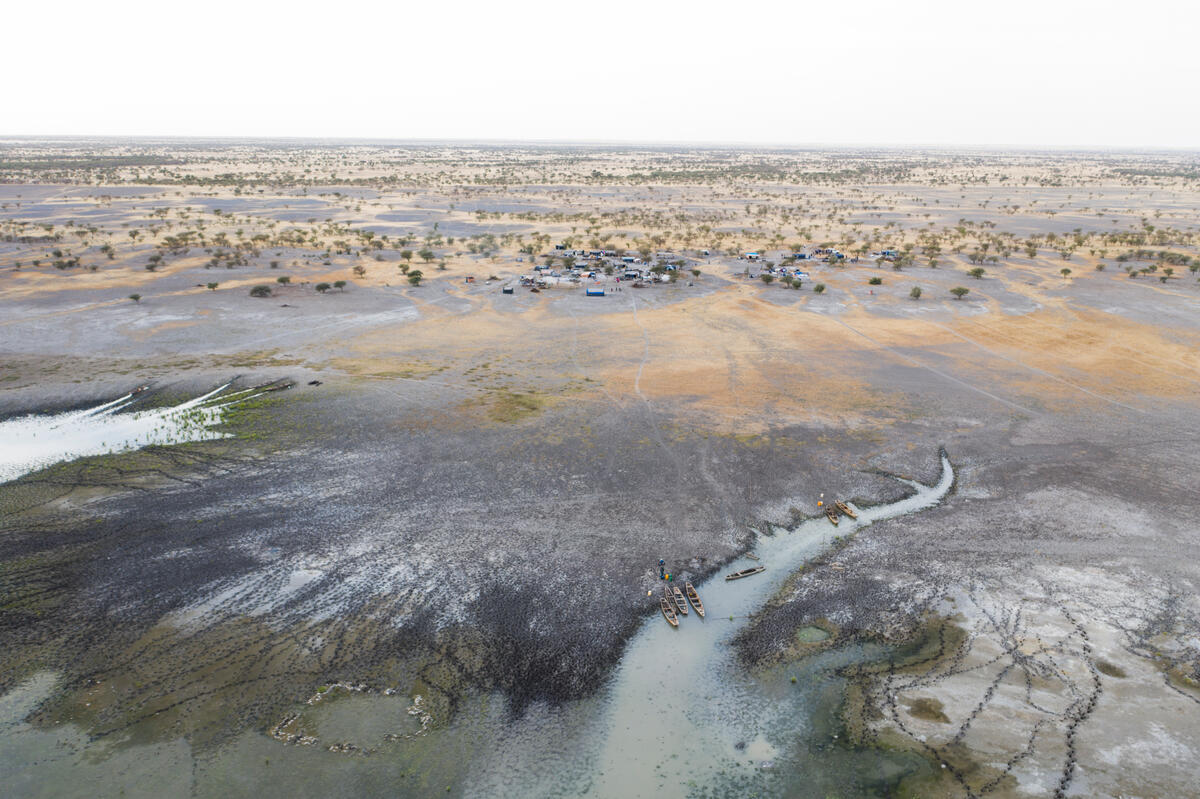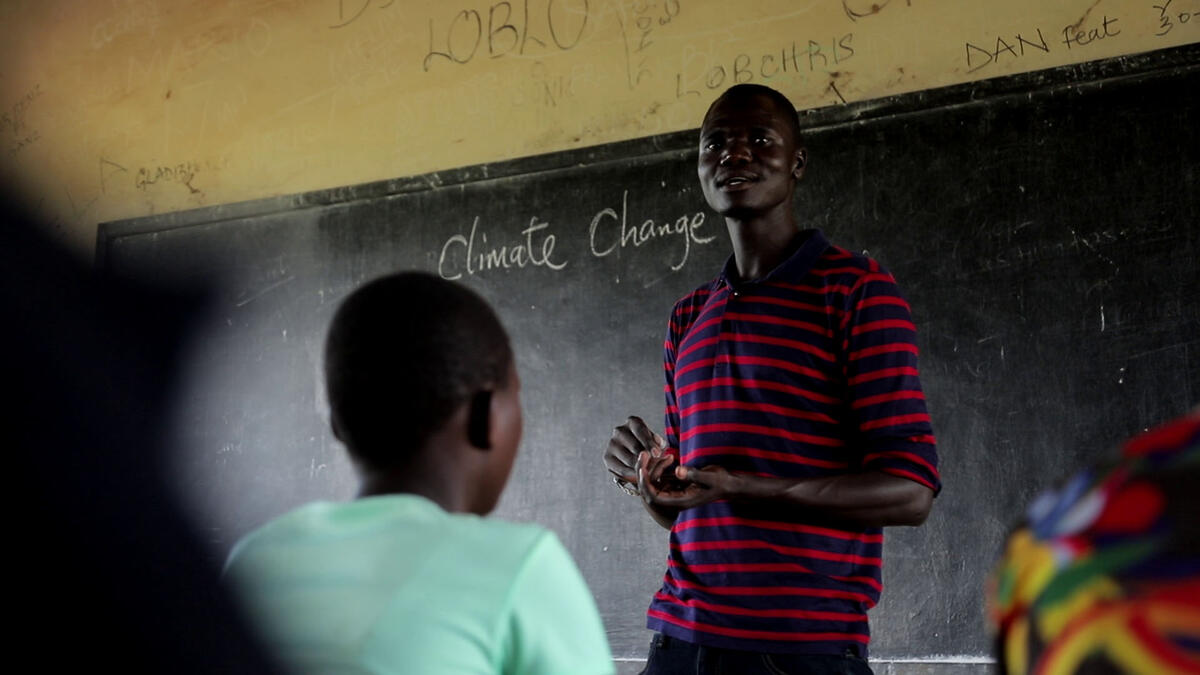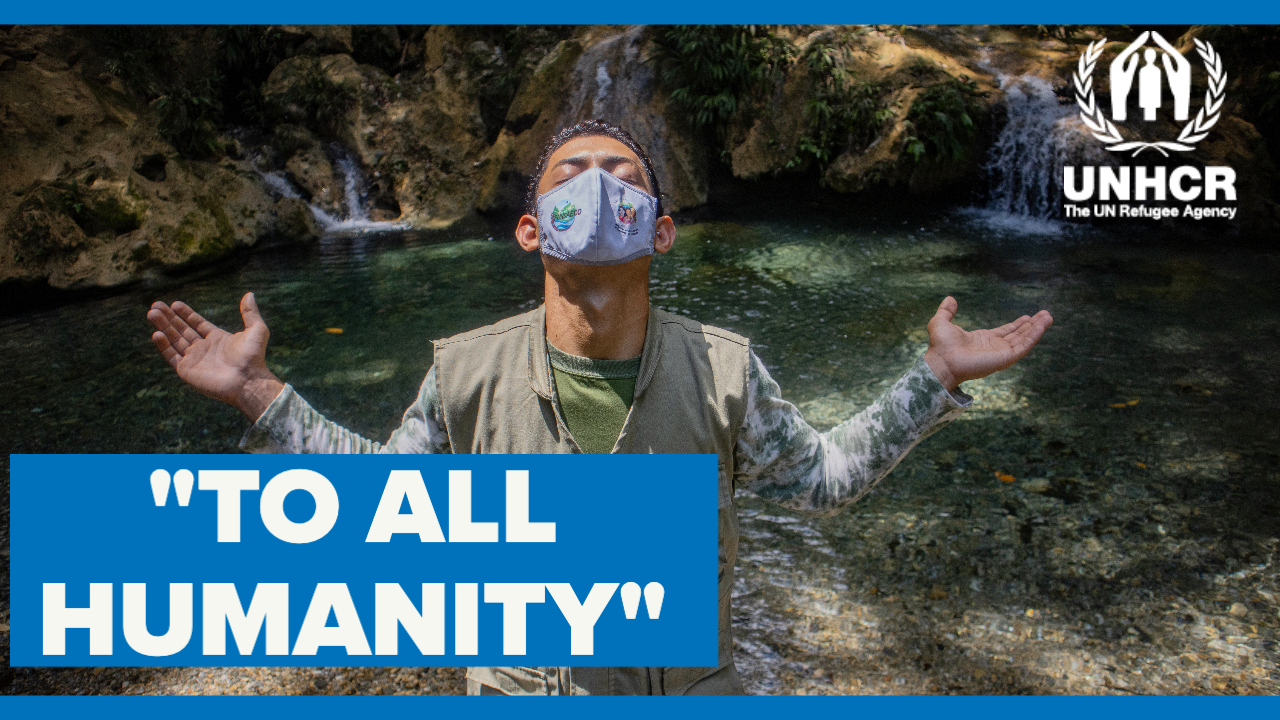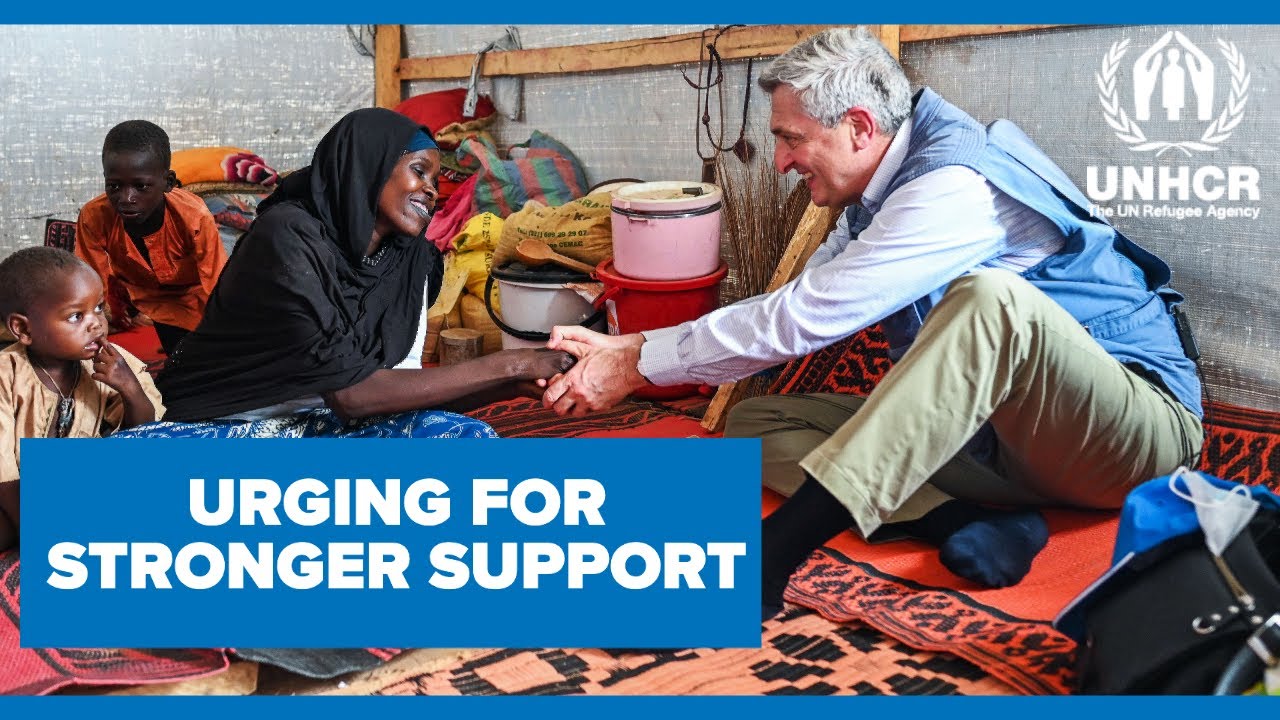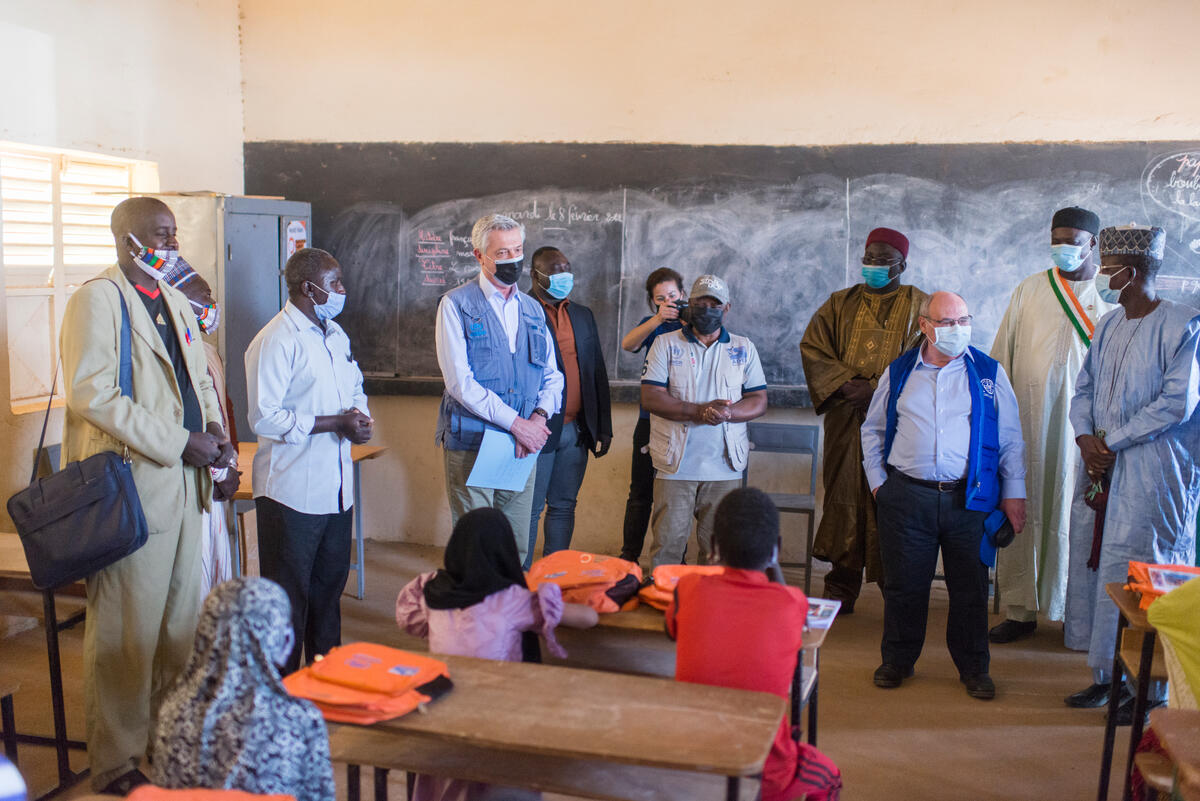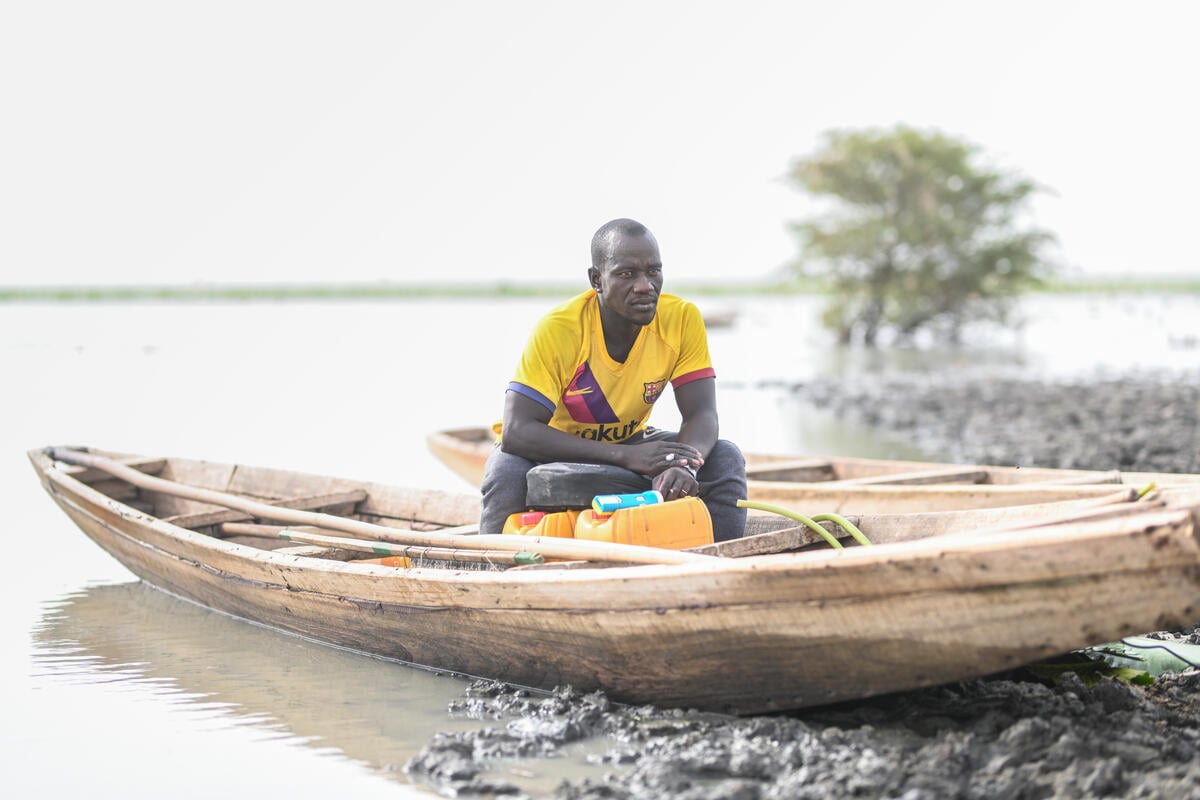International recognition for clean, safe ethanol stove used by refugee
International recognition for clean, safe ethanol stove used by refugee

KEBRIBEYAH REFUGEE CAMP, Ethiopia, June 6 (UNHCR) - The partnership between the UN refugee agency and an environmental organization has helped to slow deforestation, curb sexual and gender-based violence, reduce indoor air pollution and ease friction between refugees and locals in a corner of Ethiopia.
And now the efforts of UNHCR and the Gaia Association in distributing an innovative ethanol stove to Somali refugees in Kebribeyah Refugee Camp have been recognized internationally. Gaia has been nominated as one of seven finalists for this year's Ashden Awards for Sustainable Energy, the world's leading green energy prize. The winner will be announced in London on June 19.
Since starting the project in 2005, the Gaia Association has supplied the clean and safe Swedish-designed CleanCook stoves to every family in Kebribeyah camp as well as other refugee families in eastern Ethiopia, which has seen an influx of refugees from Somalia since 1991. The camp hosts 17,000 refugees.
The stoves help reduce the amount of fuel wood that each family needs to collect by nearly four tonnes a year. The ethanol is produced from molasses, a by-product of the local sugar industry, whose disposal previously caused water pollution. UNHCR and Gaia distribute a litre of fuel a day to each family.
Local manufacture of the stoves is expected to get under way soon, while UNHCR and Gaia plan to expand the project to all refugee camps in Ethiopia. Some stoves have already been distributed in Awbare, a second camp for Somali refugees in the region.
The environmentally friendly CleanCook stoves have proved a great hit in Kebribeyah, where cooking used to be done on open fires or using simple wood-burning stoves made from clay. They are particularly popular among women and girls in the camp.
"Before I received the stove three years ago, I gathered fuel wood outside the camp two or three times a week, leaving my house at sunrise and returning in the afternoon," recalled Habiba Ali Oumer, who has been a refugee in the camp since 1992.
She had to cook for 15 people in a poorly ventilated shelter, which soon filled up with smoke. "More worrying to me, however, was the danger we faced while collecting wood," she said, adding that her 18-year-old daughter narrowly escaped being raped while out foraging for firewood.
"Barely six months after I started using the stove, life has become much easier and I do not miss a single class at school," said fellow refugee, Furdosa Mohammed, 17, who was born in the camp. When she had to gather wood, she missed school regularly and is now trying to catch up.
"The clean energy, safe energy programme at Kebribeyah has restored the dignity of women and girls whose task it was previously to gather fuel wood with all of the associated risks," said Ilunga Ngandu, UNHCR's regional liaison office representative.
"The reduction of the pressure on the natural environment surrounding the camp will help harmonize our relations with the local communities and the host government and guarantee asylum," he added.
This was reiterated by UNHCR Environment Officer Amare Gebre Egziabher, who has played an important role in the project. "We estimate that 90 to 95 percent of the pressure on the environment has been lifted in this arid and semi-arid region." He said this meant less friction over scarce resources between refugees and host communities.
By Kisut Gebre Egziabher

